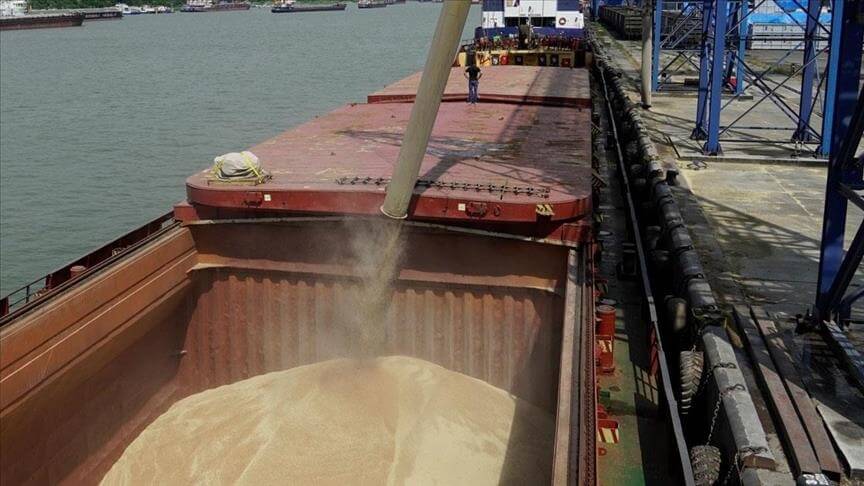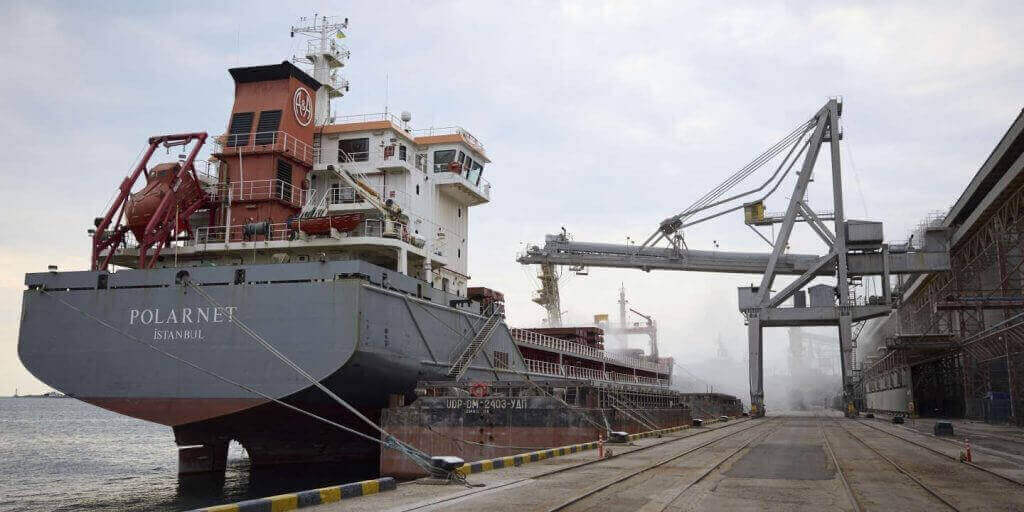Ukraine Grain Backlog Prompts The UN To Call For Expedited Ship Checks

The top UN official overseeing the exports from Ukraine has asked Russia and other countries to stop conducting “full-blown” evaluations of every departing vessel in order to reduce the backlog as almost 100 grain-laden tankers are approaching the horizon of Istanbul.
Since a sea passage from the war-torn country opened up in July, Ukraine has exported over 6.8 million tons of grains and other food products, or roughly one-third of its storage. According to the UN, the safe passage agreement that Kyiv and Moscow signed eased a global food crisis. However, when additional shippers joined, the small number of teams tasked with inspecting the cargo and crew members as they passed through Turkish seas began to lag behind, leaving the numerous tankers moored in the Marmara Sea.
The UN Coordinator in charge of the Black Sea Grain Initiative, Amir Abdulla, noted that he had suggested more expedient and focused inspections of the ships coming from Ukrainian ports. Ukraine, Russia, Turkey, and the UN, which served as brokers, are debating a potential extension and enlargement of the agreement through its deadline of November 19th.
Change will be necessary, and it is hoped that improved terms may be worked out for conducting (inspections) as part of dialogues. At the Istanbul-based four-party Joint Coordination Centre (JCC), Abdulla informed Reuters.
A Reuters study found that as of Monday, a whopping 97 departing vessels carrying almost 2.1 million tons of cargo were awaiting their inspections, with one reportedly delayed for 35 days. According to the JCC, there were 120 backlog items last week, including ones going back empty to Ukraine.

Abdulla stated that while there must be a check, it need not be a thorough inspection and that they have proposed perhaps spot checks or maritime inspections.
According to the Reuters study, the delays worsened starting in mid-September, with inspection-specific wait times tripling to over ten days by September 21. After that date, around 70% of ships left Ukraine while awaiting inspections.
Requests for comment regarding modifying inspections were met with a refusal from Russia and the defense ministry of the Kremlin. Mykola Solskyi, the Ukrainian agriculture minister, told Reuters last week that the Istanbul-based officials had not sufficiently explained why the tests had “slowed” down in the preceding two weeks.
According to Abdulla, the backlog is caused by rising export volumes and a lack of preparation on some vessels, including a lack of the necessary test tools, paperwork, and fumigation. He is attempting to get permission from Turkey, Russia, and Ukraine to increase the size of the four-party inspection teams to eight.
According to JCC, it carried out 500+ inspections at a regular pace of 10–11 a day in September and October. The updated total increased from four in August. However, a lack of onboard preparedness suggests that on roughly 50 occasions, inspectors were asked to come back again.
Russia has harshly criticized the grain agreement, complained that its shipments are still being hampered, and it might reject a prolongation. The UN is working to prolong it for another year and broaden it to cover Russia’s exports of fertilizers (like ammonia) through Ukraine, which were a key component of the original and first agreement.
Although not personally participating in the negotiations to prolong the agreement, Abdulla stated that he anticipates the addition of Russian ammonia shipments and noted Ukraine may try to widen the route east to the Mykolaiv port. A detailed evaluation of the inspection process will be required once ammonia shipments start. They are now in the early phases of discussing it.
Also Read: Jailed Seafarer Back Home From China with MUI’s Help
Click here to join our Telegram chanel
You will get information, news, and support related to Merchant Navy.
